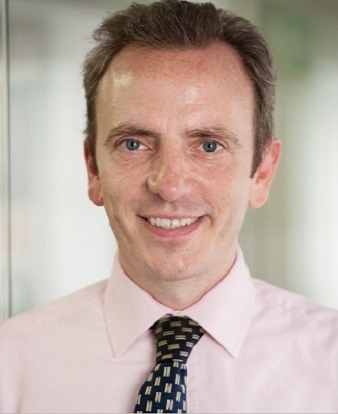Course
| Three months certification course in Acute Coronary Syndromes | Curriculum |
Fees
| INR 11800/- | Apply Now |
About this course
India has the highest burden of Acute Coronary Syndromes (ACS) in the world1. Rapid and accurate diagnosis is critical because missing an ACS diagnosis can be fatal and timely intervention improves outcomes2.Studies have shown higher mortality rates and premature death in South Asian countries due to ACS3.
BMJ is delighted to announce the launch of the Three Months Certificate Course in Acute Coronary Syndrome. BMJ is one of the world's leading providers of medical knowledge and education & is known around the world for the quality of content. Like our other credentialed courses, this course is evidence based, continually updated and has peer reviewed scientific content by international and local [South Asian] experts.
This course is suitable for the clinicians who are keen to enhance their clinical practice and upgrade the knowledge but are challenged by the paucity of time and unsure if the course content is evidence based & peer reviewed. BMJ's three months certificate course in ACS is an e learning course which gives confidence to doctors to manage patients with acute chest pain. It will shed light on the assessment of patients with chest pain as well as diagnosis and step-by-step management of stable and unstable angina, STEMI and Non-STEMI. The course content will help you to make better clinical decisions. The course content is in the form of text as well as video modules by subject experts.
There is a final online assessment at the end of the course in the form of MCQ [Multiple Choice Questions]. For successful completion of the course minimum passing percentage required is 70%
This course is suitable for medical doctors [MBBS] & above.
Introductory Fee: INR 11800
To apply for the course, please click here
For more information, please write to us at education.india@bmj.com or you can call us at 91-120-4345733 - 37, +919650052070 (09:30 AM - 05:00 PM, Monday to Friday).
Source
1. Xavier, MD (2008) Treatment and outcomes of acute coronary syndromes in India (CREATE): a prospective analysis of registry data, The Lancet, https://www.thelancet.com/article/S0140-6736(08)60623-6/fulltext
2. https://www.biomerieuxindia.in/resources/healthcare-information/acute-coronary-syndromes
3. Ralapanawa (2019) Epidemiology and risk factors of patients with types of acute coronary syndrome presenting to a tertiary care hospital in Sri Lanka,BMC Cardiovascular Disorders
Course Directors
Dr. Prof Upendra Kaul
Chairman, Batra Heart Centre, Dean Academics and Research of BHMRC, New Delhi
Dr Kaul is currently Chairman Batra Heart Centre and Dean Academics and Research of BHMRC, New Delhi. He was formerly Professor of Cardiology at All India Institute of Medical Sciences, New Delhi. He has also been on the faculty of G.B. Pant Hospital, New Delhi, PGIMER, Chandigarh and Batra Hospital, New Delhi.
Dr. Kaul is one of the first Cardiologists to start coronary interventions in India. He has started a number of new techniques in Interventional Cardiology which include percutaneous cardiopulmonary bypass, rotational & directional atherectomy, coronary stenting and percutaneous laser myocardial revascularization etc. He has trained more than 200 full time cardiologists and is on the faculty of several prestigious universities in USA, Europe, Far East, China & Australia. He also participates as a faculty in most of the important meetings in Interventional Cardiology nationally and internationally. Prof. Kaul is a Past President of the Cardiological Society of India & is currently Vice President of the SAARC Cardiac Society. Dr. Kaul has been a recipient of several prestigious awards such as the Dr B C Roy Award for developing specialties in 1999 and the Padma Shri in 2006.

Dr. Kieran Walsh
Clinical Director, BMJ Learning & BMJ Best Practice
Dr Kieran Walsh is Clinical Director at BMJ. He is the clinical lead of the medical education and clinical decision support products at BMJ. He has a vast amount of experience in online medical education, clinical decision support, face to face delivery of medical education, and both summative and formative assessment. He has published over 200 papers in the biomedical literature and has written four books: the first and only book on cost effectiveness in medical education; a dictionary of quotations in medical education; a history of medical education in 100 images; and the Oxford Textbook of Medical Education. He is a Fellow of the Higher Education Academy, a Fellow of the Royal College of Physicians of Ireland, a Fellow of the Academy of Medical Educators, and Adjunct Associate Professor at Monash University. In the past he has worked as a hospital doctor specialising in General Internal Medicine and Geriatric Medicine.
Course objectives
- After completing this course of modules, you should be able to:
- 1. Feel confident in assessing patients with acute chest pain
- 2. Know how to approach the diagnosis of chest pain in a logical manner
- 3. Understand the role of lifestyle modification in managing heart disease, with emphasis on smoking cessation, weight management, physical activity, lipid control, and blood pressure control
- 4. Understand how best to manage patients with chest pain (including those with stable and unstable angina),
- 5. Understand the difference between ST-elevation and non ST-elevation myocardial infarction (MI)
- 6. Know about recent advances in management
Course curriculum
- Module 1: Assessment of chest pain
- Module 2: Overview of acute coronary syndrome
- Module 3: Stable Ischaemic heart disease
- Module 4: Unstable angina
- Module 5: Non ST elevation Myocardial infarction
- Module 6: ST-elevation Myocardial infarction

